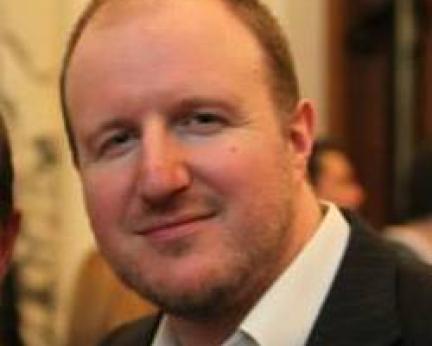I am a great advocate of the 'Do whatever grabs you at the time' school of career planning. Some people find success in progressing towards a long-term career goal which is ten or twenty years away, and good for them if they do. However, I had no idea that the job I do now even existed ten years ago, and some of the professional experiences that I am most grateful for were opportunities I took at pretty short notice. As someone very wise once said to me, “If you keep your gaze fixed on the horizon then you may miss the shiny thing out of the corner of your eye”.
I drifted into nurse training after doing an undergraduate philosophy degree which I really loved, but which didn’t seem to lead anywhere vocationally. I didn’t know whether or not I wanted to be a nurse, I just knew that I didn’t want a desk job. I gravitated strongly towards A&E nursing during my training, because I loved the unpredictability and the challenge of it. My heroes have always been people who seem to be able to cope in any situation, and if I was going to become more like that (I reasoned), then A&E seemed like a pretty good place to practise. At the same time, I really liked the idea of working overseas, and thought that A&E would also be a good preparation for that.
I did ten years in A&E (staff nurse; senior staff nurse; clinical charge nurse), and found the experience testing but very rewarding. The teamwork is what I miss the most about it, because going through traumatic and challenging experiences together really bonds you with your co-workers. I got very interested in the reasons that people came to A&E, and I saw that many of these were problems that should either have been prevented or else dealt with in a more planned and appropriate setting. I specialised in trauma and domestic violence, and gained some experience of audits and service improvement work. I also took advantage of the skills and experience I was developing to work overseas. I did some ship-board medicine, and worked as an expedition medic in South East Asia. I also worked as a nurse, and later as a medical team leader, for Médecins Sans Frontières (MSF) in Darfur.
My experience with MSF really opened my eyes to the wider determinants of health. In Darfur I helped to run a health centre for a population of about 50,000 people displaced by war, in the context of very limited resources and ongoing violence by government forces and rebel groups. It gave me an invaluable outside perspective on the NHS, and the things that both positively and negatively affect population health in this country. When I came back to the UK I immediately enrolled on a part-time public health MSc programme at King's College London. It was during my Master's that I first heard about the non-medical application route for becoming a public health registrar, and thought it might be a good idea.





